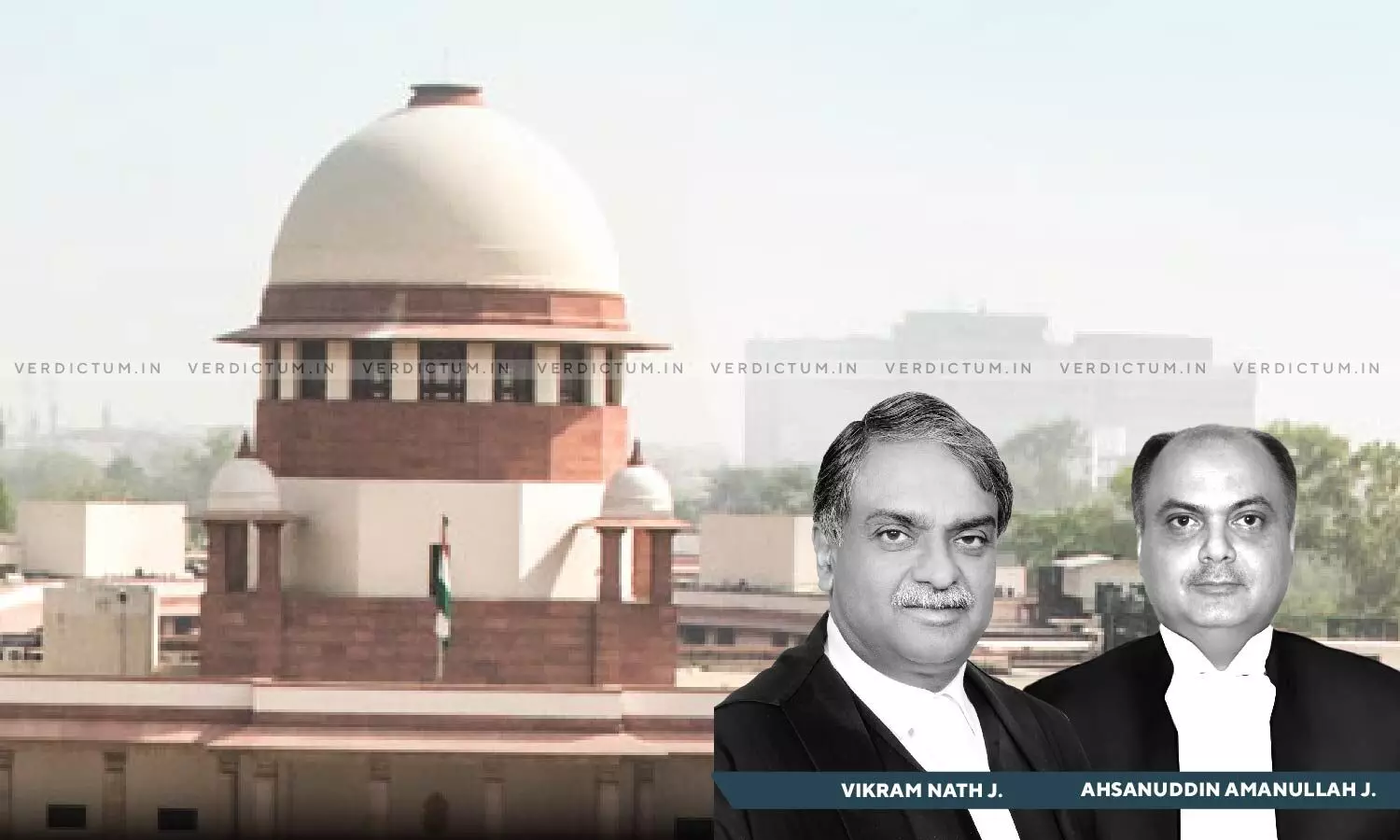
Section 378 IPC: Since There Was Injunction For Preserving Property In Joint Possession, Removal Without Consent Or Knowledge Would Amount To Theft- SC
 |
|The Supreme Court held that since an injunction was granted to preserve the property, removal of the property without consent or knowledge of the other owner would amount to theft under Section 378 of the Indian Penal Code.
The Court allowed the Appeal and set aside the judgment of the High Court, whereby an FIR filed against the First Respondent was quashed. The case pertained to possession of a shop that was in common possession of the Appellant and the First Respondent but the First Respondent, without informing the Appellant, had handed over the possession to a person who had bought the shop from the land owner. The Appellant lodged an FIR under Sections 457, 380, and 506 of the IPC.
“Even in the absence thereof once there was an injunction granted to preserve the property, respondent No.1 could not have dealt with the same and, at the outset, he should have informed the appellant about the orders passed under section 9 of the 1996 Act. He should have refrained himself from surrendering the possession of the shop in question. His participation in the crime prima facie, therefore, cannot be ruled out”, the Bench comprising Justice Vikram Nath and Justice Ahsanuddin Amanullah observed.
Senior Advocate Vikas Singh appeared for the Appellant and Senior Advocate R. Basant appeared for the Respondent
The Appellant and the First Respondent, a partnership was formed as Kartas of their respective Hindu Undivided Families (HUFs), and a written partnership deed was executed. They operated a business as tenants in a shop, rented from the owner. The First Respondent initiated the dissolution of the partnership by serving a legal notice to the Appellant and retained the keys to the shop, preventing the Appellant's access. In response, the Appellant issued a legal notice to counter the initial notice. The Appellant also applied Section 9 of the Arbitration and Conciliation Act, 1996 (Act), which led the District Court to direct that the shop should not be accessed by either party without the other's presence and appointed an arbitrator.
The Appellant's position centered on an arbitral award that was based on a compromise stating that all the assets and property of the partnership were to be exclusively held by the Appellant and his father. Dissatisfied with the High Court's decision to allow both writ petitions and quash the FIR lodged by the Appellant, he appealed to challenge this judgment and order. In a separate case involving Mr. Ambuj Rastogi, he purchased a shop in the name of M/s Sushma Constructions Pvt. Ltd. along with his wife, Sushma Rastogi, and subsequently initiated an eviction suit against the First Respondent. The Trial Court rejected the suit, leading M/s Sushma Constructions Pvt. Ltd. to appeal to the High Court, which ruled in their favor.
However, after the First Respondent surrendered possession, the Appellant discovered that the locks had been changed and that the board of M/s Sushma Constructions Pvt. Ltd. was displayed outside the shop. Consequently, the Appellant filed an FIR, alleging that the First Respondent and others had opened the locks and removed valuable assets. The FIR specifically mentioned the Appellant and the First Respondent as Kartas of their HUF, with an interim order in place, which indicated significant assets stored in the shop.
The FIR was challenged through a Criminal Writ Petition and was subsequently quashed by the High Court, which believed that the FIR did not establish offenses under relevant sections of the Indian Penal Code (IPC). The complainant approached the Court by way of two appeals.
The Court observed that the filing of the Small Causes Suit for eviction by M/s Sushma Constructions Pvt. Ltd., with the First Respondent as the sole defendant, strongly suggests collusion. Additionally, the Court observed that the First Respondent should have revealed the injunction issued by the District Judge under Section 9 of the Act. Respondent No.1, by almost admitting to the eviction claim, played a role in the collusive suit and deliberately concealed crucial facts from the court.
Furthermore, the Court noted that despite being under an injunction to preserve the shop's assets and belongings, the First Respondent surrendered possession, and along with co-accused, including the Directors of M/s Sushma Constructions Pvt. Ltd., unlawfully removed assets and belongings by breaking locks, violating the injunction orders.
The Court observed that the FIR was registered for offenses under sections 457, 380, and 506 of the IPC. The Court observed that the assets within the shop were jointly possessed by the Appellant and the First Respondent, and removal of these assets without the Appellant's knowledge amounts to theft. The Court further held that given the breaking of locks and the removal of assets, a significant punishment under section 457 would apply.
Additionally, the Court noted that the offences contained in the FIR were cognizable and contained necessary elements. Therefore, the Court held that the High Court erred in quashing the FIR. The investigation and trial will determine whether the offenses are proven, but there is no basis for FIR quashing.
“The FIR contained the specific averment that when the appellant questioned respondent No.1, he threatened him to remain quiet otherwise he would lose his life. All these offences are cognizable in nature and basic ingredients being there in the FIR, the High Court clearly erred in quashing the FIR. Whether the offences are proved or not would be a subject matter of the Trial and before that of the investigation as to whether a triable case is made out or not by the investigating agency but in any case, was not a case where FIR was liable to be quashed”, the Bench noted.
Accordingly, the Court allowed the Appeal and set aside the impugned judgment of the High Court.
Cause Title: Ruchir Rastogi v Pankaj Rastogi And Others (2023 INSC 941)